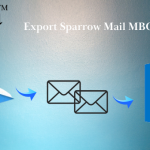In the dynamic world of nonprofits, effective donor management is paramount for sustained success. Nonprofit organizations rely heavily on the generosity of donors to fuel their mission-driven initiatives. To navigate the complexities of donor relationships and streamline operational efficiency, nonprofits often turn to donor management software.
In this blog post, we’ll explore the top features that make a nonprofit donor management software invaluable in today’s philanthropic landscape.
1. Comprehensive Donor Profiles
At the heart of any effective donor management software lies the ability to create and maintain comprehensive donor profiles. These profiles should go beyond basic contact information, encompassing a 360-degree view of each donor.
This includes their giving history, communication preferences, engagement levels, and any other relevant details. A holistic understanding of donors allows nonprofits to tailor their interactions, fostering deeper and more meaningful connections.
2. Donation Tracking and Processing
Efficient tracking and processing of donations are fundamental features for any nonprofit donor management software. The system should facilitate the seamless recording and processing of various types of contributions, including one-time gifts, recurring donations, and in-kind support.
Integration with popular payment gateways ensures a smooth donation process, offering donors a frictionless experience when contributing to the organization’s cause.
3. Automated Communication and Engagement Tools
Effective communication is key to donor retention and engagement. A robust donor management software should include automated communication tools such as personalized thank-you emails, acknowledgment receipts, and newsletters.
These features not only express gratitude but also keep donors informed about the impact of their contributions and engaged with the organization’s activities.
4. Segmentation for Targeted Campaigns
The ability to segment donors based on various criteria is a powerful tool for nonprofits. The best donor management software should offer segmentation capabilities, allowing organizations to categorize donors based on factors like giving history, demographics, or engagement preferences.
This segmentation enables targeted and personalized campaigns, maximizing the impact of fundraising efforts.
5. Seamless Workflow Integration
Nonprofits operate in an ecosystem of various tools and platforms. A top-notch donor management software goes beyond standalone functionality; it seamlessly integrates with existing workflows.
This ensures a smooth flow of data between different systems, reducing manual efforts and fostering a cohesive environment where every piece of information plays a vital role in shaping the organization’s strategy.
6. Advanced Reporting and Analytics
To measure the effectiveness of fundraising efforts and make informed decisions, nonprofits need robust reporting and analytics tools. The top donor management software for nonprofits will offer customizable reports, dashboards, and analytics features.
These tools empower organizations to track key performance indicators, donor retention rates, and the success of various fundraising campaigns.
7. Security and Compliance Measures
The sensitive nature of donor information necessitates robust security measures within donor management software. Nonprofits must prioritize solutions that adhere to industry-standard security protocols to protect donor data.
8. User-Friendly Interface
A user-friendly interface is a critical aspect of any successful software, and donor management systems are no exception. The nonprofit donor management software should be intuitive, with an easy-to-navigate design that minimizes the learning curve for users.
A user-friendly interface ensures that staff members can focus on building relationships with donors rather than grappling with complex software.
9. Mobile Accessibility
In an era where people are constantly on the move, mobile accessibility is a feature that should not be overlooked. A donor management software with mobile capabilities allows staff to access crucial donor information and perform essential tasks on the go.
This flexibility enhances efficiency and ensures that nonprofits can stay connected with their donors, regardless of location.
10. Volunteer Management
Many nonprofits rely on volunteers to support their initiatives. An integrated volunteer management feature within donor management software streamlines the process of recruiting, organizing, and communicating with volunteers. This ensures that volunteer efforts align with the organization’s goals and that those contributing their time feel valued and engaged.
11. Event Management Capabilities
Organizing events is a cornerstone of nonprofit engagement. The best donor management software will include event management capabilities, allowing organizations to plan, promote, and track the success of fundraising events.
Whether it’s a gala, a charity run, or an awareness campaign, the software should provide tools for efficient event coordination and donor participation tracking.
Conclusion
In the ever-evolving landscape of nonprofit work, a robust donor management software can make all the difference. By incorporating these top features, nonprofits can establish a foundation for effective donor relationships, streamlined operations, and successful fundraising initiatives.
Investing in the right donor management solution is not just a practical decision; it’s a strategic move towards ensuring the long-term sustainability and success of the organization’s mission. As technology continues to advance, nonprofits must harness the power of these features to maximize their impact and create positive change in the communities they serve.


